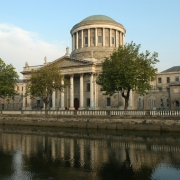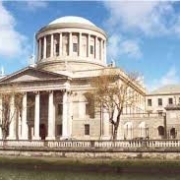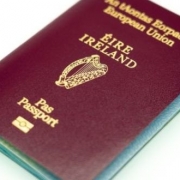REFUSAL OF NATURALISATION APPLICATION ON GOOD CHARACTER GROUNDS OVERTURNED BY HIGH COURT
Mr Justice Garrett Simons of the High Court has recently delivered a judgement in the case of A.J.A v Minister for Justice [2022] IEHC 162 JR.
The case concerned a refusal of an application for naturalisation.
The application was refused on the grounds that the Applicant did not meet the good character criterion under Section 15(1)(b) of the Irish Nationality and Citizenship Act, 1956. The Applicant was found to have submitted a potentially false Somali passport with her application.
The Applicant subsequently issued judicial review proceedings in the High Court to challenge the decision to refuse her application for a certificate of naturalisation. This was the second set of judicial review proceedings issued by the Applicant in respect of her application for naturalisation. The Applicant had issued judicial review proceedings in 2021 challenging the delay in processing her application. These proceedings were struck out of the High Court in January 2022, following the issuance of a decision on the Applicant’s application in December 2021.
The primary issue that was considered in the second set of judicial review proceedings was whether fair procedures had been observed in the Minister’s decision-making process.
The Applicant submitted her application for naturalisation on the 29th May 2017. On the 6th November 2017, the Applicant’s solicitors submitted a letter to the Minister that highlighted the Applicant’s concern as to the genuineness of the passport that she had submitted with her application. On the 10th May 2018, the Applicant’s solicitors sent a further letter to outline attempts made by the Applicant to have a new Somali passport issued. The Respondent then sent a letter in response, confirming that a thorough investigation was required as to the genuineness of the Applicant’s passport. It was the Applicant herself who proactively contacted the Minister in relation to this issue and confirmed that she had always acted in good faith in respect of her application for a passport and in respect of her application for naturalisation.
The Applicant was ultimately successful in the High Court on the grounds that the Minister’s decision did not consider the Applicant’s explanation nor the exculpatory factors at issue.
Mr Justice Garrett Simons found that submission of the Minister did not meet the prescribed standard of fair procedures as it failed to acknowledge the explanations offered by the Applicant in respect of her passport. Ms Justice Garrett Simons found that, “The omission from the submission/recommendation of an accurate record of the explanation and exculpatory factors is fatal to the validity of the decision made.” The Court further found that the Minister’s decision did not meet the legal test for the adequacy of reasons.
The Court acknowledged that the submission of a false passport is an extremely serious issue and could of course legitimately give rise to a decision to refuse an application for Irish citizenship by way of naturalisation. The Court found that it was the manner in which the decision was made that was problematic, it was not clear whether the Applicant’s explanation that due to the circumstances in Somalia and the lack of Government, she could not confirm if her passport was valid or not, had been provided to the Minister when the decision to refuse was made. The Court held that “The failure of the respondent in the present case to take the basic step of identifying the precise documents which had been submitted to the ultimate decision-maker is regrettable”.
The Minister of Justice’s decision to refuse the Applicant’s naturalisation application was quashed. The Court held:
- The submission/recommendation in the present case failed to meet the prescribed standard of fair procedures. The principal deficiency is that the submission/recommendation fails to record, even in the most cursory form, the explanations offered by the Applicant, through her solicitors, for the submission of the false passport. There is no reference to the practical difficulties asserted by the Applicant in obtaining a passport from Somalia given what is said to be the absence of a functioning central government there. Nor is there any reference to the efforts made by the Applicant to travel to the Somali Embassy in Belgium for the purpose of obtaining a passport. Although these events occurred after the submission of the false passport, they are, 13 arguably, indicative of the practical difficulties which a Somalia national, who has been long-term resident in the Irish State, faces in obtaining a passport from that country
The full judgement can be found here.
This blog article has been prepared on the basis of current immigration law and policy, which is subject to change. Please keep an eye on our blog and Facebook page where articles relating to updates and changes in immigration law and policy are regularly posted.



